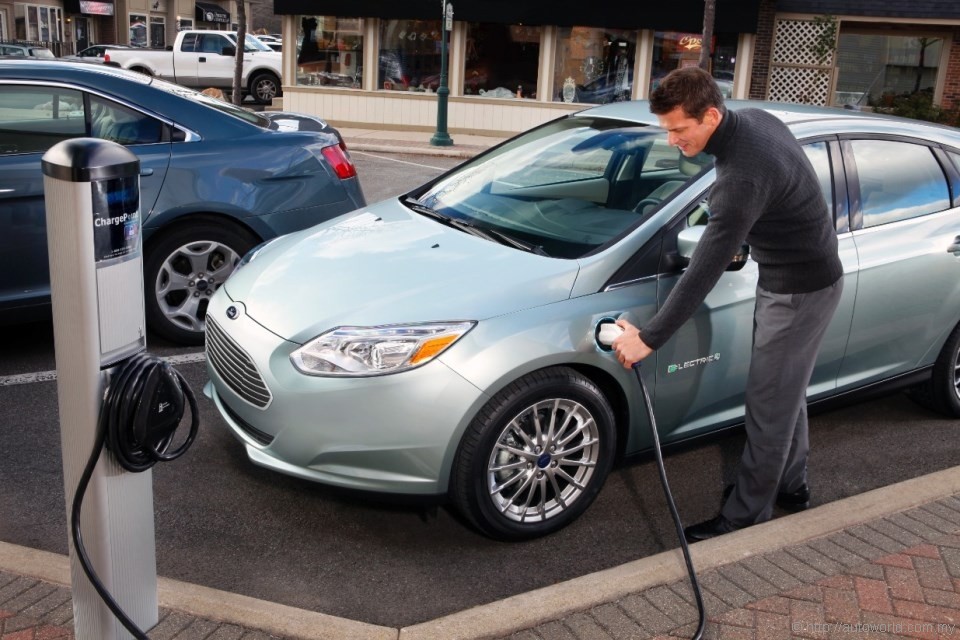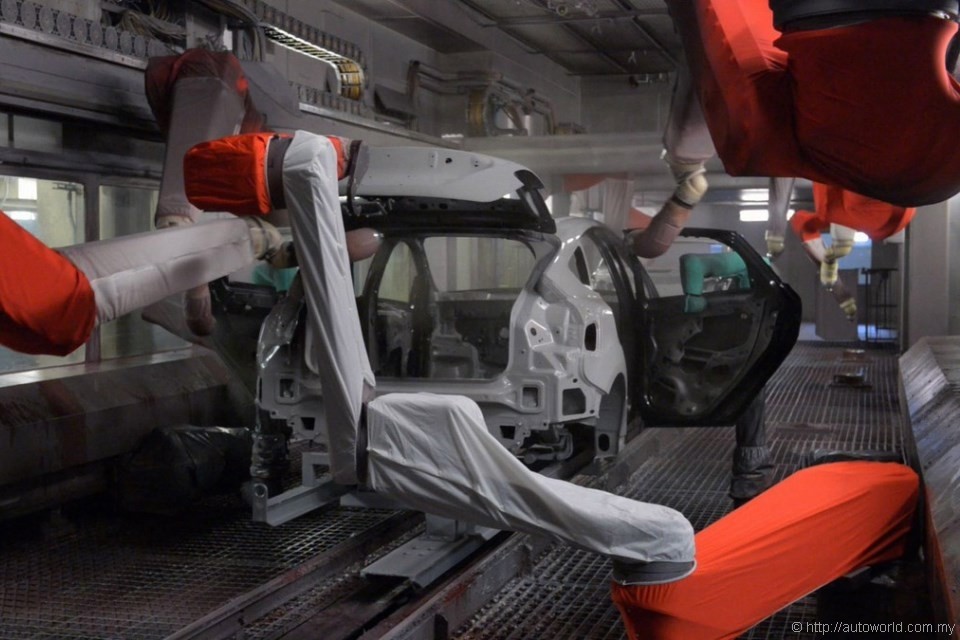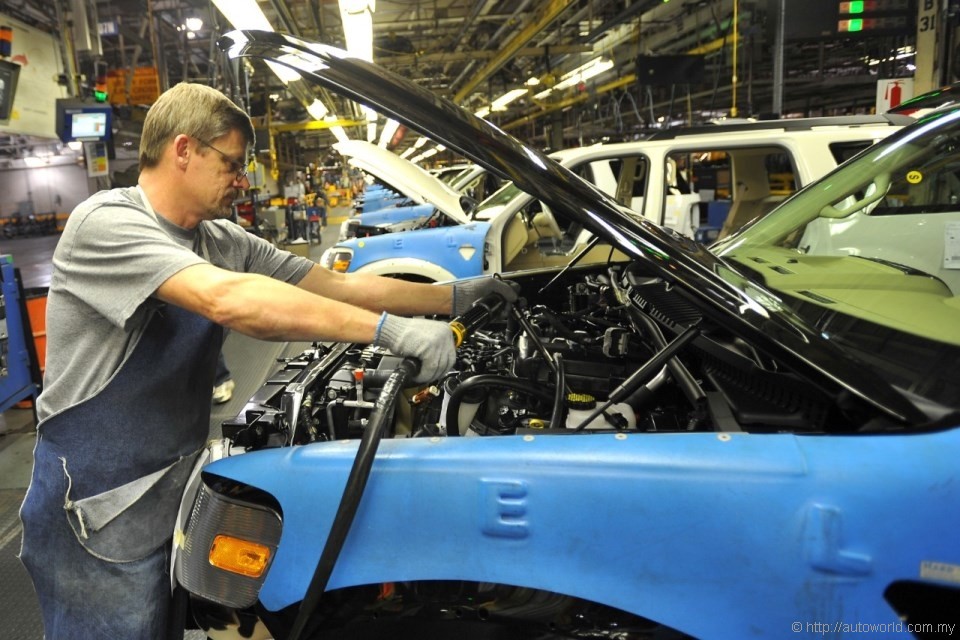Ford’s Savvy Business Approach Toward a Sustainable Future
Ford is a recognised industry frontrunner in corporate social responsibility, exemplifying strong corporate leadership and a commitment to sustainable business practices over its past 110 years. Since its founding, the company’s business plan has been to deliver great products and a better world. From socially responsible supply chains, to reducing carbon emissions and emphasising public accountability, Ford is leading the automotive world in how to incorporate sustainable practices into a profitable, successful business model.
Ford’s sustainability strategy focuses on several key areas including reducing carbon emissions and water usage, responsible supply chain management and human rights. Sustainability is, however, not a goal that can be broken into distinct parts and Ford has gone to great lengths to take a holistic approach to this issue. The company currently adheres to the philosophy that sustainability issues should be integrated into business processes, managed by organisation functions, much like any other part of its business, as the examples below demonstrate.
Improving Fuel Economy and Reducing Carbon Emissions
Ford’s vehicle offerings themselves are testaments to Ford’s commitment to reducing the impacts of climate change. Each new vehicle is the leader, or among the leaders, in fuel economy in its class. As a company, Ford has set a goal to reduce facility CO2 emissions per vehicle by 30 per cent by 2025, compared to a 2010 baseline. This builds on Ford’s already-achieved goal of reducing CO2 emissions by over 30 per cent from 2000 to 2010.
To accomplish this new goal, Ford has introduced a wide variety of new engine and transmission technologies, as well as electrical system improvements, weight reductions and aerodynamic improvements to deliver significant fuel-economy benefits in the near term.
Ford’s EcoBoost® engines are the centrepiece of Ford’s efforts to improve vehicle fuel efficiency. Utilising gasoline turbocharged direct-injection technology, EcoBoost engines significantly improve fuel economy and reduce CO2 emissions, while simultaneously providing superior driving power and performance. By the end of 2012, Ford had produced more than 52,000 EcoBoost engines worldwide and by the end of 2013, Ford will offer EcoBoost engines on 90 per cent of its North American and European nameplates.
In March 2013, the award-winning 1.0L EcoBoost engine made its ASEAN debut in the new Ford Fiesta and new Ford EcoSport at the Bangkok International Motor Show. Here in Malaysia, EcoBoost is available on the all-new Ford Focus ST, the recently launched all-new Ford Kuga, the all-new Ford Mondeo and the all-new Ford S-Max. Ford will continue to offer this premium, award-winning powertrain on additional soon-to-be-launched models.
Vehicle electrification is another avenue for reducing vehicle CO2 emissions. To meet growing consumer interest in electrified vehicles, Ford now offers six models in its global electric vehicle portfolio – all part of Ford’s “Power of Choice” strategy to deliver leading fuel economy for consumers regardless of what type of vehicle or powertrain they prefer.
In addition to reducing carbon emissions via improved fuel economy, Ford is also active in improving its manufacturing processes to be more environmentally friendly. In April 2013, Ford announced its plans to expand its industry-leading 3-Wet paint capacity manufacturing operations.
The 3-Wet process derives its name from three layers of paint applied one after the other prior to earlier coats having cured. The advanced chemical composition of 3-Wet paint materials allows for the three layers of paint – primer, base coat and clear coat – to be applied while the previous layer is still wet.
The process eliminates stand-alone primer application and a dedicated oven required in the conventional process that was used before. Thanks to these eliminations, Ford saves electricity from the blowers that circulate massive volumes of air through paint booths, reducing its use of natural gas needed to heat the air and ovens. This results in significant reductions of CO 2 emissions, as well as reductions in VOC compared to current medium-solids and solvent-borne paints.
The 3-Wet technology process means Ford can maintain the top quality characteristics its customers demand, including long-term durability and chip and scratch resistance. Ford was the first automaker to implement this innovative technology and since its launch in 2007, the 3-Wet process has helped Ford reduce CO2 emissions by 15 -25 per cent and volatile organic compound (VOC) emissions by 10 per cent at those facilities where the process is used.
Reducing Water Usage
Ford recognises that the need for clean water cuts across all social, economic, environmental and political boundaries. Clean water availability is a critical global sustainability issue, the effects of which are felt locally, everywhere Ford operates. Ford is committed to developing and implementing solutions to this global water challenge, doing its part as a corporate leader to conserve water and use it responsibly.
Many vehicle manufacturing processes require water, and water is used at practically every point in Ford’s supply chain. Ford’s water strategy actions and goals include minimising water use and consumption at Ford facilities; finding alternative, lower-quality water sources; meeting global standards for wastewater discharge; and prioritising water technology investments based on local water scarcity and cost effectiveness.
In 2000, Ford proactively launched its Global Water Management initiative, putting in place ways to manage water conservation, quality and reuse of storm and process water. Since 2000, Ford has decreased its total water use globally from 64 million cubic metres to 24 million cubic metres, enough to fill 16,000 Olympic-size swimming pools.
In late 2011, Ford announced its global water use reduction strategy to decrease the average amount of water used to make each vehicle by 30 per cent between 2009 and 2015; since 2009, Ford has already cut its water use by 25 per cent per vehicle.
Some recent highlights of Ford’s water conservation efforts at its own facilities:
• Cologne Engine Plant (Germany): Decreased water use by 50 per cent per engine through implementation of a dry-machining process
• Silverton Assembly Plant (South Africa): Began using a USD$2.5 million on-site wastewater treatment plant increasing the amount of water that can be reused by up to 15 per cent
• Chennai Assembly Plant (India): Installed a new system that began operating in September and allows the plant to recycle 100 per cent of its water
• Chongqing Assembly 1 (CAF1) and Chongqing Assembly 2 (CAF2) (China): Both plants added advanced water treatment equipment to improve recycling. CAF1 recycles an average 100,000 gallons (approximately 378,500 litres) daily, and CAF2 an average 65,000 gallons (approximately 246,000 litres)
• Louisville Assembly Plant (U.S.): Recently replaced parking lot asphalt with pervious paving blocks to manage stormwater runoff, helping protect nearby bodies of freshwater
Production – Waste Reduction
In February 2013, Ford announced its new global waste reduction strategy, calling for a 40 per cent per vehicle reduction in the amount of waste sent to landfills from 2011 to 2016, equal to just 13.4 pounds (approximately 6 kg) per vehicle worldwide. This plan builds on Ford’s success between 2007 and 2011, when the amount of waste sent to landfill per vehicle dropped from 37.9 to 22.7 pounds (approximately 17 kg to 10 kg) , a 40 per cent reduction.
“Reducing waste is a crucial part of our strategy toward building a world-class manufacturing system,” said John Fleming, executive vice president, Global Manufacturing and Labor Affairs. “By applying standard waste reduction processes across our global facilities, we are, through our actions – and not just words – improving the quality of life where we do business.”
Proving its sustainability strategy is also good business, in 2012, Ford generated $225 million in revenue through recycling 568,000 tonnes of scrap metal in the U.S. and Canada alone.
Sustainable Supply Chains
In today’s economic environment, achieving lower costs, improving quality and meeting sustainability goals require an unprecedented level of cooperation with suppliers, as well as fostering and maintaining strong supplier relationships. In no industry is that more true – the automotive supply chain is one of the most complicated of any industry. Automakers rely on thousands of suppliers to provide the materials, parts and services necessary to produce vehicles.
Ford promotes long-term relationships with its suppliers, encouraging alignment on sustainability-related issues, primarily on human rights and working conditions. Ford aims to ensure everything it makes – or others make on behalf of Ford – is produced in alignment with local laws and Ford’s own Code of Human Rights, Basic Working Conditions and Corporate Responsibility. To achieve this, Ford partnered with its suppliers, other automakers, governments, nongovernmental organisations and other stakeholders. Its primary focus has been on training and education regarding working conditions issues and management system, as well as third-party assessments of individual supplier factories to verify performance and progress.
Ford’s long-term vision is for the automotive industry as a whole to work together to ensure that its high expectations around human rights and working conditions are met throughout the supply chain. Ford’s view is that all participants in the automotive supply chain – from the original equipment manufacturers (OEMs) such as Ford, to the suppliers themselves, to the government agencies that set and enforce the regulations governing operations – must be involved to make these efforts sustainable in the long run. Such collective action will not only minimise costs and increase efficiency for OEMs and suppliers alike, but will lead to better results than if individual companies take steps in isolation.
Ford has made a promise to its customers to always Go Further – not only in providing class-leading, impressively innovative, high-quality vehicles, but also in its commitment to sustainable, responsible business practices. Ford takes its role as a strong corporate citizen very seriously and is committed to leading the way in ensuring business is conducted in the smartest, most socially- and environmentally-responsible way possible.
Pictures: Official Ford release.




























